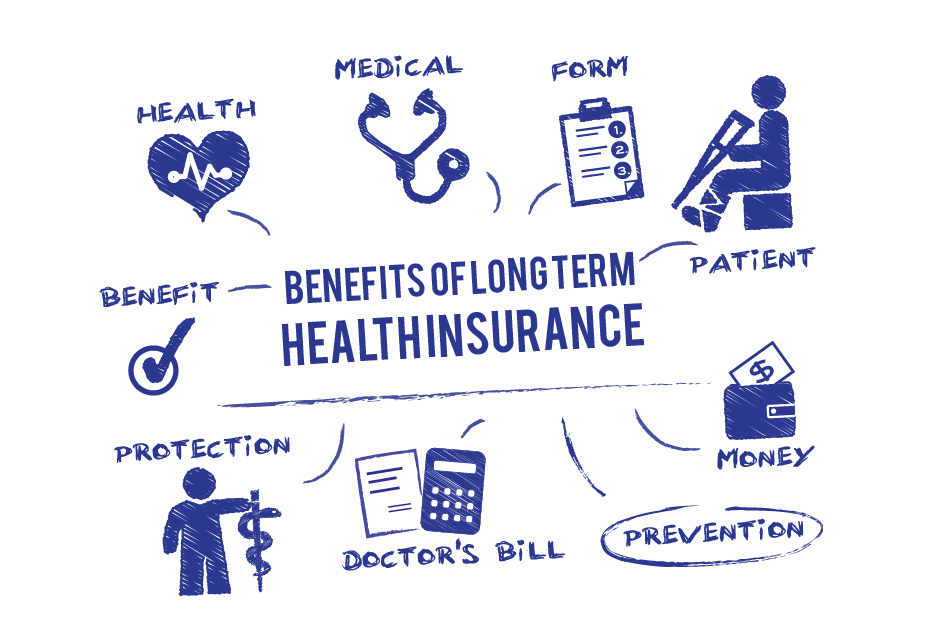
Introduction:
In today’s uncertain world, the importance of well-being assurance cannot be overstated. From unforeseen medical expenses to unexpected property damage, life is riddled with risks that can jeopardize our financial security and peace of mind. Insurance plays a crucial role in mitigating these risks and ensuring that individuals and families can navigate through life’s challenges with greater confidence. In this article, we will delve into the various aspects of well-being assurance, exploring the benefits of insurance and its significance in safeguarding our health, assets, and overall quality of life.
Understanding Insurance: At its core, insurance is a contract between an individual or entity (the insured) and an insurance company (the insurer), wherein the insured pays a premium in exchange for financial protection against specified risks. These risks can vary widely, ranging from health-related issues like illness and injury to property damage, liability claims, and even loss of income. By spreading the risk among a large pool of policyholders, insurance enables individuals to transfer the financial burden of unforeseen events to the insurer, thereby providing a safety net against financial devastation.
Types of Insurance and Their Benefits:
- Health Insurance:
- Health insurance is perhaps one of the most crucial forms of well-being assurance. It covers medical expenses incurred due to illness, injury, or preventive care.
- Benefits include access to quality healthcare services, coverage for hospitalization, surgeries, medications, and preventive screenings.
- Health insurance offers financial protection against exorbitant medical bills, ensuring that individuals can seek necessary treatment without worrying about the cost.
- Life Insurance:
- Life insurance provides financial support to beneficiaries in the event of the insured’s death. It serves as a crucial tool for protecting the financial future of dependents and loved ones.
- Benefits include income replacement, debt repayment, funeral expenses, and estate planning.
- Life insurance offers peace of mind, knowing that loved ones will be taken care of financially in the event of an untimely demise.
- Property Insurance:
- Property insurance safeguards against damage or loss of physical assets, including homes, vehicles, and personal belongings.
- Benefits include coverage for natural disasters, theft, vandalism, fire, and other perils.
- Property insurance helps homeowners and businesses recover financially from unexpected events, enabling them to rebuild and restore their properties.
- Disability Insurance:
- Disability insurance provides income replacement if the insured becomes unable to work due to a disabling injury or illness.
- Benefits include financial stability, continuation of income, and support for daily living expenses.
- Disability insurance ensures that individuals can maintain their standard of living and meet their financial obligations even when unable to work.
- Liability Insurance:
- Liability insurance protects individuals and businesses from legal claims and lawsuits alleging negligence or wrongdoing.
- Benefits include coverage for legal defense costs, settlements, and judgments.
- Liability insurance shields assets and preserves financial stability by covering potential liabilities arising from accidents, injuries, or property damage.
Importance of Well-being Assurance:
- Financial Protection:
- Insurance provides a crucial safety net against unexpected financial burdens, ensuring that individuals and families can weather life’s storms without facing bankruptcy or financial ruin.
- By transferring risk to insurers, insurance policies offer peace of mind and stability, allowing individuals to focus on their health, well-being, and long-term goals.
- Access to Healthcare:
- Health insurance facilitates access to essential healthcare services, including preventive care, diagnostic tests, treatments, and medications.
- Without health insurance, individuals may delay or forgo necessary medical care due to cost concerns, leading to adverse health outcomes and higher healthcare costs in the long run.
- Asset Protection:
- Property and liability insurance safeguard assets against unexpected perils, ensuring that homeowners, businesses, and individuals can recover from losses without depleting their savings or investments.
- Insurance allows individuals to protect their homes, vehicles, valuables, and businesses from unforeseen events that could otherwise result in financial devastation.
- Peace of Mind:
- Knowing that one is adequately insured provides a sense of security and peace of mind, allowing individuals to focus on living their lives without constant worry about potential risks and uncertainties.
- Insurance offers reassurance that, in the face of adversity, there is a financial safety net in place to provide support and assistance.
Conclusion: Well-being assurance through insurance is an essential component of financial planning and risk management. Whether it’s protecting health, property, income, or loved ones, insurance provides invaluable peace of mind and financial security. By understanding the benefits of various insurance products and investing in adequate coverage, individuals and families can safeguard their well-being and navigate life’s uncertainties with greater confidence and resilience. Remember, when it comes to protecting your future, insurance is not just an expense but a wise investment in your peace of mind and financial stability.
 Accident Lawyers Offshore Accident Lawyers – Offshore Injuries & Jones Act Lawyer
Accident Lawyers Offshore Accident Lawyers – Offshore Injuries & Jones Act Lawyer



